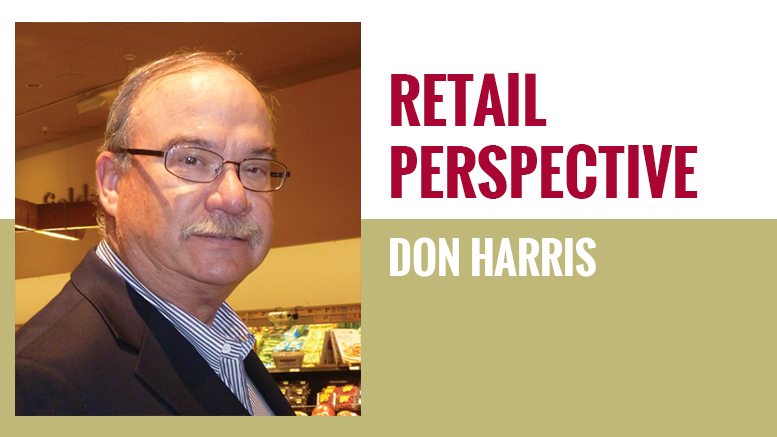Seizing On Opportunities In August
August 1, 2018 | 3 min to read
As August approaches, the grocery industry often succumbs to the “Dog Days of August” mindset, hindering sales progress. However, innovative retailers can harness opportunities by promoting late-season crops, local produce, and utilizing farmers markets to engage consumers. Emphasizing community involvement and a proactive approach can maintain momentum into fall, demonstrating a commitment to fresh, locally sourced products. This strategy fosters a vibrant atmosphere, enhancing customer perception and driving sales forward throughout the month.

Originally printed in the August 2018 issue of Produce Business.
 When August rolls around, management tends to return to the negative mindset of ‘The Dog Days of August.’ This attitude leads to a lack of commitment driving sales. The thinking is the consumer no longer has any interest in food and is now concerned with other things, such as back-to-school and the late vacation.
When August rolls around, management tends to return to the negative mindset of ‘The Dog Days of August.’ This attitude leads to a lack of commitment driving sales. The thinking is the consumer no longer has any interest in food and is now concerned with other things, such as back-to-school and the late vacation.
This August mindset has dominated retail for many years, regardless of changes in the marketplace. The rest of the market has been accelerating the seasons the past few years, with each shopping period or season beginning earlier. One only has to examine the holiday season to note sales and promotions beginning earlier every year.
However, in the grocery industry, this idea of giving up promotional activity during August continues to stymie sales’ momentum. But this simply is not, and does not have to be, the case. There is evidence from many retailers that sales momentum and promotional activity, especially in the produce department, can continue during this month, and in many cases accelerate overall momentum. This once again shows management ‘just doesn’t get it.’
An innovative produce retailer always takes advantage of available opportunities in any specific season or time frame. During August, we have illustrated in previous articles opportunities for driving produce sales and continuing the momentum buildup during the summer selling season. These opportunities range from new and exciting varieties, the explosion and peak season of locally supplied produce and the growing popularity of farmers markets and their influence on the consumer. All these opportunities provide ample reason to continue promoting and highlighting the produce department.
With the marketplace evolving and the seasons blurring into earlier starts, it’s critical grocery retailers and produce departments, in particular, revise the mindset and operational philosophy to take advantage of the month of August.
In fact, the most successful retailer often combines these opportunities into a focused program to drive sales throughout the month. Targeted promotion of key late-season crops, such as varieties of berries, naturally leads into the promotion of local products. Combining these two factors with the use of local growers in-store to promote their products creates the farmers market atmosphere that stimulates sales and consumer interest. The use of local producers to promote their crops also helps establish a link between consumers and produce grown within the area.
 The key to success is the total commitment needed from the department and from management. The most innovative retailers often combine this focus in produce with other promotional activity throughout the store. This strategy promotes the image of being the place to enjoy a late-summer abundance of fresh fruits and vegetables available from far and wide, as well as locally. This further builds on the overall farmers market atmosphere, fostering an almost county fair-like feeling.
The key to success is the total commitment needed from the department and from management. The most innovative retailers often combine this focus in produce with other promotional activity throughout the store. This strategy promotes the image of being the place to enjoy a late-summer abundance of fresh fruits and vegetables available from far and wide, as well as locally. This further builds on the overall farmers market atmosphere, fostering an almost county fair-like feeling.
In the majority of cases, this also ties in with local activity, as many areas of the country have their county fairs during the month of August. This brings the retailers closer to the community and demonstrates their commitment and promotion of local events. The total involvement of the store is absolutely key to creating this feeling and thereby influencing the customers’ perception of the store. Anything less than full engagement will not have the desired effect.
With the marketplace evolving and the seasons blurring into earlier starts, it’s critical grocery retailers and produce departments, in particular, revise the mindset and operational philosophy to take advantage of the month of August. In choosing a proactive approach instead of resigning oneself to the ‘Dog Days of August,’ the momentum can be continued into the fall. This positive move creates the necessary bridge to maintain sales, as well as morale, during a critical time period.
Don Harris is a 41-year veteran of the produce industry, with most of that time spent in retail. He worked in every aspect of the industry, from “field-to-fork” in both the conventional and organic arenas. Harris is presently consulting. Comments can be directed to editor@producebusiness.com.
10 of 23 article in Produce Business August 2018

